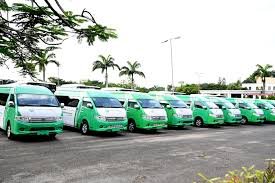In response to global safety concerns surrounding compressed natural gas (CNG) vehicles, Nigeria’s government has reaffirmed its commitment to using CNG as a safer, economical alternative to gasoline-powered vehicles.
Under President Bola Tinubu’s administration, officials have addressed public concerns following Malaysia’s recent announcement to phase out CNG vehicles by 2025 due to safety issues with aging gas tanks.
In a statement on social media platform X,on Thursday , Bayo Onanuga, Special Adviser on Information and Strategy, clarified the distinctions between Nigeria’s approach and Malaysia’s policy shift.
“The situation in Malaysia pertains to the safety of LPG, NOT CNG… Nigeria’s transition focuses solely on CNG, not both, because of legitimate safety and cost issues related to LPG,” Onanuga explained.
Malaysia’s decision to phase out CNG vehicles stems from fears that CNG tanks, after 15 years, could present safety risks due to potential deterioration. The Malaysian government plans to halt the registration of new CNG vehicles by July 2025, according to Transport Minister Anthony Loke.
In contrast, Nigeria’s CNG strategy involves strict safety measures influenced by successful CNG programs in India, China, and Iran. Onanuga added that the government is also prioritizing the local manufacturing of CNG tanks to enhance safety and sustainability.



